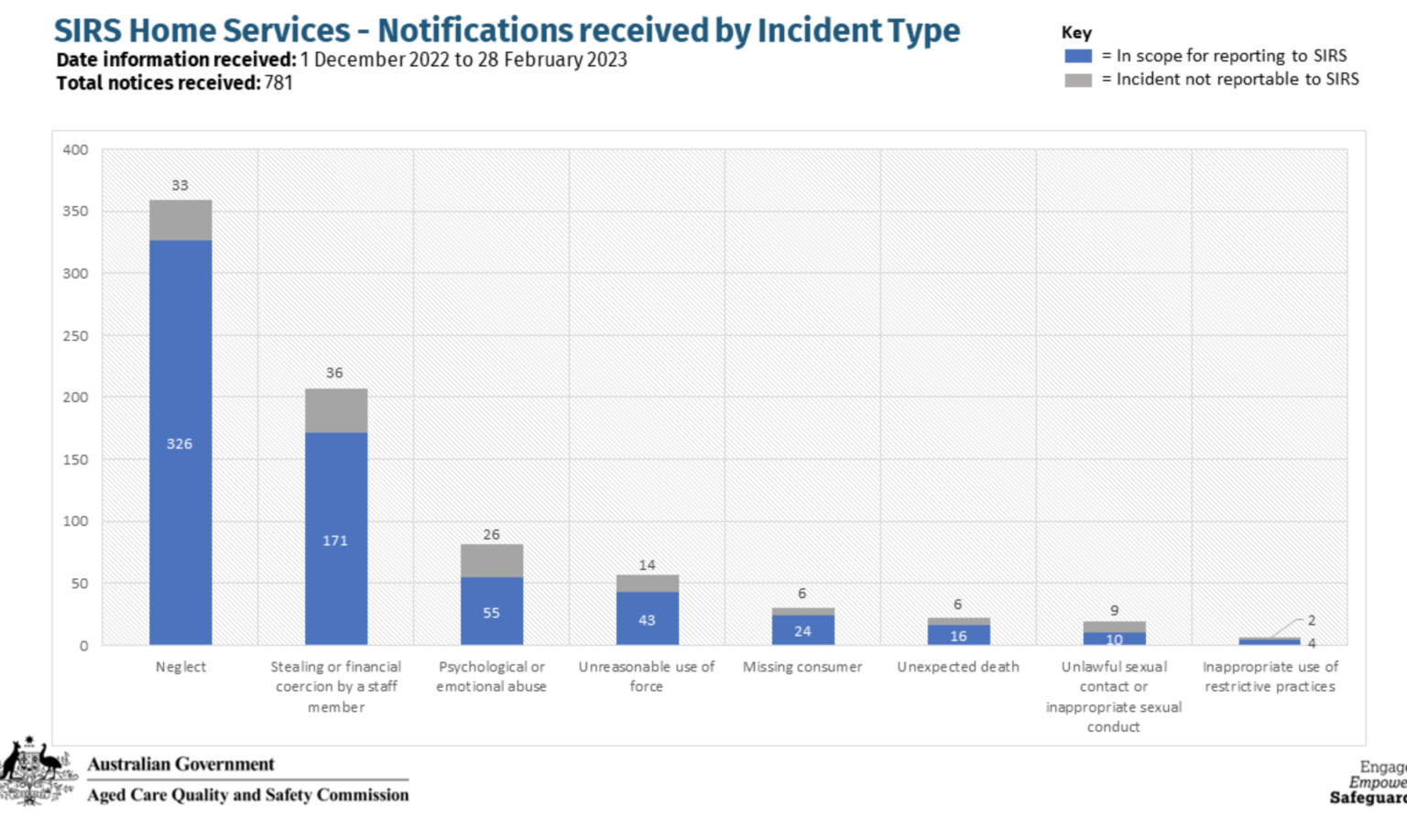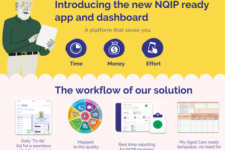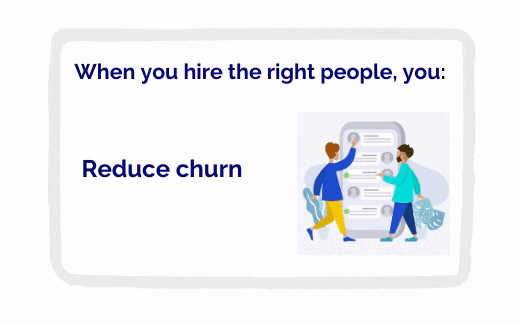
The commencement of the SIRS (Serious Incident Reporting Scheme) in December last year and its requirements have introduced greater responsibility for home care providers. The purpose of introducing SIRS in in-home care is to combat cases of abuse for home and community care in Australia. Home care providers are expected to not only manage and prevent the incidents but also are required to notify reportable incidents to the Commission.
Let’s take a quick look to understand the requirements of SIRS for home care and also the way forward to ensure compliance.
SIRS reporting in Home Care
SIRS sets out guidelines for providers to manage and take reasonable action to prevent incidents when it comes to the safety, health, wellbeing and quality of life of consumers. To achieve this, SIRS requires providers to have an effective Incident Management System (IMS) in place for all incidents, whether reportable or not.
The webinar held by the Department of Health and Aged Care on ‘Early lessons learned from SIRS in home service’ highlighted the requirements of SIRS reporting which broadly covered:
– The 8 ‘reportable incidents’ categories:
- unreasonable use of force
- unlawful sexual contact or inappropriate sexual conduct
- psychological and emotional abuse
- unexpected death
- stealing or financial coercion by a staff member
- neglect
- inappropriate use of restrictive practices
- missing consumer
– To be reportable, an incident needs to have caused harm or could reasonably be expected to have caused harm. The definition of harm is defined broadly.
– The availability of a SIRS decision support tool to quickly and easily determine the difference between Priority 1 and Priority 2 reportable incidents.
The Aged Care Quality Standards, specifically Standard 8, already requires home care providers to have an Incident Management System as part of their risk management system. The extension of SIRS will require them to review their Incident Management System to ensure its adequacy.
SIRS stats from the Commission after the first quarter
The Commission has shared some key statistics on incidents reported in the first quarter, pointing out the importance of an effective incident management system that allows for data to guide improvement and have a consumer focussed approach. Some of the stand out figures include:
– A total of 781 notifications in the last three months (Dec ‘22 – Feb ‘23) and a number of them were matters that were not reportable under SIRS (refer chart below).
– Of the notifications, the majority of non-reportable matters were the ones that occurred before 1st December 2022. This highlights a pressing issue that the Commission has witnessed of having fairly low reporting and have urged providers to engage with the scheme and understand obligations in order to bring a positive change to the sector.
One of the takeaways of this webinar is to have an effective Incident Management System. This IMS, instead of just being a reactive system should be proactive and allow data analysis to guide improvement for a consumer focussed approach. Fundamentally it should answer following two basic questions:
- How did the incident happen?
- Is there a way the incident could have been avoided or prevented?
“An effective process is not just about recording and reporting, It’s to set up advance planning systems to avoid the occurrence of the incident.”
The risks/challenges that home care providers are likely to face
The Department has identified some categories of ‘incidents’ and potential risks that can pose serious concerns for home care providers. These include:
– Providers having limited control over a person’s home or community environment. This can impact their ability to detect, prevent and manage risks.
– The potential conflict between a person’s choice and dignity, where someone doesn’t want a report to be made.
– The ‘grey’ area: these are incidents that providers aren’t sure if they need to be reported or not. The Commission emphasized that providers need to have a deeper understanding of what’s laid out in Commission’s guide before reporting.
– Incidents categorised as ‘neglect’ – this is an important category and needs specific attention by the providers as they do not have constant contact with their care recipients. This was a dominant category under which notifications were made.
– To identify gaps in provider’s current systems and make necessary changes. Having multiple strategies in place and the need to recognise that no single intervention is perfect.
Initial questions to be addressed to implement SIRS compliance
- Is the provider taking into account the consumer’s physical, mental and environmental conditions (ie; if the surroundings are same or changed)?
- Whether records are maintained about staff actions or lack of actions?
- Could the risks be identified in advance?
- Is the provider taking inputs from the related people involved with the incident rather than relying on one side of the story?
- Can the system take into account the impact on people living with dementia (A section that’s often being overlooked when it comes to SIRS reporting) ?
“Providers’ approach needs to be inclusive.”
A well defined IMS would bring a systemic approach to reduce the risk of incidents’ occurrence, without relying on one or two managers. It will unify data and action to enable the timely resolution to the satisfaction of both consumer and provider.
Feedback Channel Overload and Slipping Through the Cracks
It is important to discuss the pitfalls of an unsophisticated IMS. While the sincere hope by many is to have an IMS that meets all the requirements, there are dangers of vital information slipping through the cracks when a system is not optimal.
Imagine that a Provider, Happy Home Care, sets up feedback surveys to receive data on how residents are feeling about their experience as residents. Mrs Jones, provided her feedback, detailing her claims and concerns about an incident where she was physically and verbally abused by a certain carer and since then has been nervous about the care she receives. Mrs Jones had written her concern in the “general free text field” that came at the end of the survey.
However the beginning bulk of the survey had been true or false, and when asked if she had ever felt unsafe, she had felt too scared, so had ticked no. It was only when she got to the end did she get the courage to write her story. The feedback survey formed part of the companywide annual resident feedback survey review, where all the feedback was aggregated into one report. As the meeting had run long, the team focussed on the risk management questions in the true or false section and put off going through the “general free text field”. It wasn’t until 6 months later where a manager was skimming through the “general free text field” that the incident was reported.
CarePage is Ready to Support and Guide your IMS
At CarePage, our feedback and complaints modules can help organisations identify potential and immediate actions, with ease, efficiency and timeliness. Our modules can help organise data, with managers and relevant personnel being alerted in real time, and whether it falls under the mandatory reporting requirements of SIRS thus making the management of information easier.
Our modules always operate in real time and can be customised to fit within your organisation’s operational and functional needs. Managers are notified as soon as a complaint is submitted on the feedback forms by family or residents. This data can be embedded in a website and directly feed into our complaints module that we also monitor.
Where To Next and How We Can Help
Interested to see more? Take a look at our client feedback form – this form once submitted, sends managers an alert to respond to in the tickets module. Our systems have been seamlessly engineered to receive data, organise it and ensure that it is flagged to the appropriate parties, effortlessly and immediately.
We’re here to support, guide and make sure you’re ready for the next round of #SIRS reporting.
Be Confident and Compliant with CarePage.
The key to success with SIRS comes down to having a robust IMS in place that can link, report, analyse and use data across feedback and complaints so that your organisation is always moving towards continuous improvement.
Does this sound like your organisation?
If you answered no, don’t worry, our team of experts are here to help!
Let us be a part of your journey to being fully SIRS compliant and confident.
At CarePage our role is to provide explanation and support so that the adoption of our services and technology is easy, fluid and seamless. Contact us for a demo today!
Or get in touch today by emailing hello@carepage.com.au.















